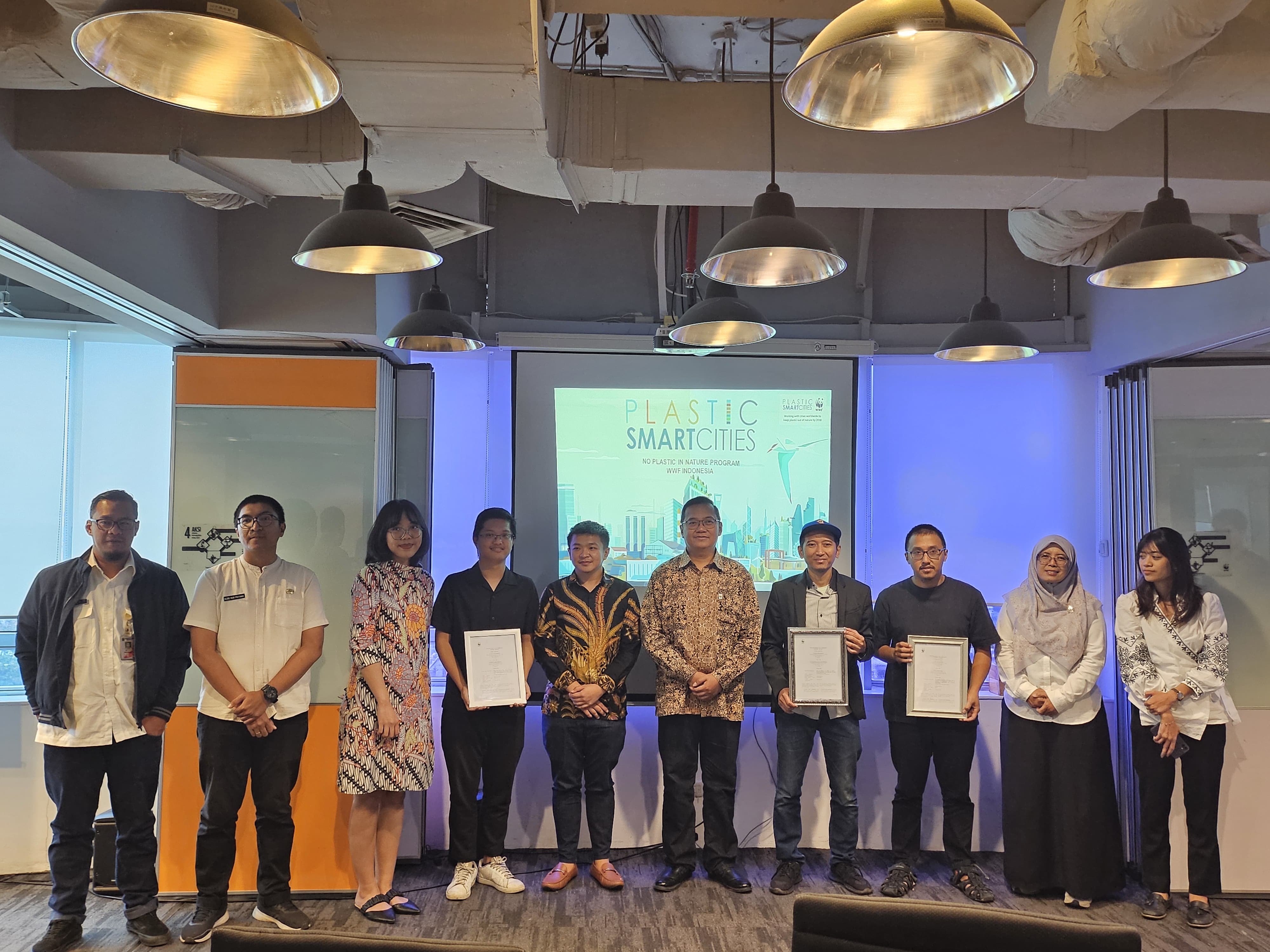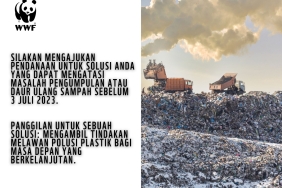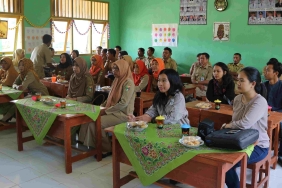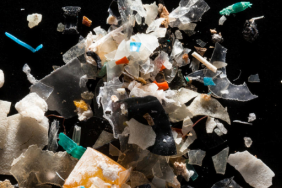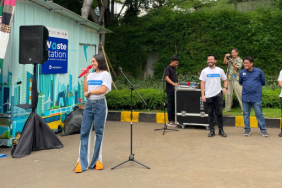A NEW COLLABORATION TO MANAGE PLASTIC WASTE IN JAKARTA, BOGOR AND DEPOK CITIES
WWF-Indonesia through the Plastic Smart Cities (PSC) Program launches a new partnership with 3 institutions from Indonesia, namely PT. KIBUMI, PT. WASTE4CHANGE and RECO Consortium: PT Million Limbah Indonesia, PT Khazanah Hijau Indonesia (Rekosistem) and SweepSmart. This collaboration aims to strengthen the work of the PSC program in addressing plastic leakage in nature by 30% by 2025.
The new collaboration to be carried out in DKI Jakarta, Depok City, and Bogor City aims to improve the waste collection system and optimize plastic recycling. It also creates a synergy of activities between local plastic waste management stakeholders and the three organizations.
Why is this collaboration focused on cities? Data from Making Oceans Plastic Free (2017) states that an average of 182.7 billion (sheets) of plastic bags are used in Indonesia every year, if the total weight then the figure reaches 1,278,900 tons per year. Of the total weight, about 56.7 percent of the national waste generation is contributed by only 58 cities and regencies in Indonesia. The rest is contributed by other regions. So it is evident that cities are the main contributors of plastic waste and usually have limited waste management infrastructure. Moreover, according to the Ministry of Environment and Forestry, the total waste generation in Indonesia in 2022 will reach 36.1 million tons and 18.07% will be plastic waste.
To reduce the pressure of plastic waste entering nature, especially in urban areas, WWF-Indonesia through the Plastic Smart Cities program seeks to encourage cities that are major producers of plastic waste to reduce plastic waste leakage into nature.
Aditya Bayunanda, CEO of WWF Indonesia Foundation in his speech said "This new cooperation is one of our efforts in strengthening the handling of plastic waste". Aditya continued, "We sincerely hope that these three new partners will make a significant impact in tackling plastic waste in Jakarta, Bogor, and Depok. More importantly, they can inspire and mobilize all parties to manage their plastic waste, including corporations."
The three partners will conduct various activities to reduce plastic waste. PT KIBUMI will build an integrated digital platform for waste pickers, enterprise resource planning (EPR), and POS systems for scrap collectors and Bumi Hubs, and brand owners and recycling companies as well as provide a comprehensive training program for informal waste workers on financial management, healthcare systems, and environmental safety.
Furthermore, RECO Consortium will build a Plastic Smart Recovery Hub that will sort and recycle the collected waste with more efficiency and a higher recovery rate. Meanwhile, PT WASTE4CHANGE plans to establish and upgrade two production facilities with informal sector partners, deliver flexible plastic waste to recycling sites, and integrate the facilities and value chain into the Plastic Credit program by rePurpose Global (with Verra Standards).
Setyawati, Head of Environmental Management Division, Bogor City Environmental Agency in her speech said "Bogor City is the first city to join the declaration in Plastic Smart Cities in August 2021. We continue to strive to manage waste from the source and encourage people to sort waste from households. Setyawati added, "We invite all parties to continue collaborating in waste reduction efforts, especially in urban areas. This requires collaborative efforts because managing waste cannot be done alone."
Through this collaborative program, WWF-Indonesia hopes to produce a big impact that moves all parties to participate in reducing plastic leakage into nature.

